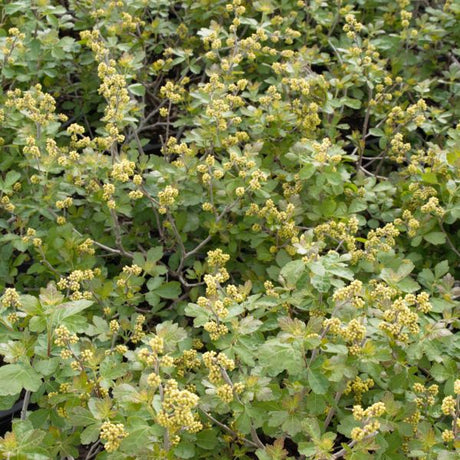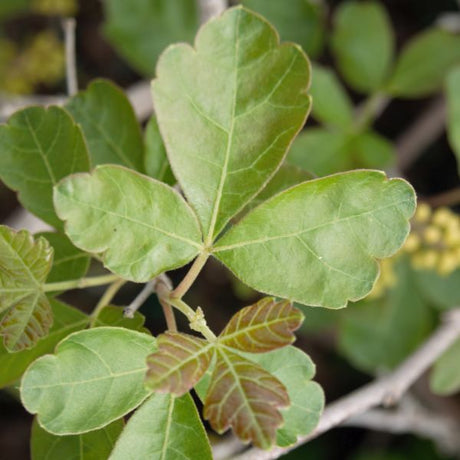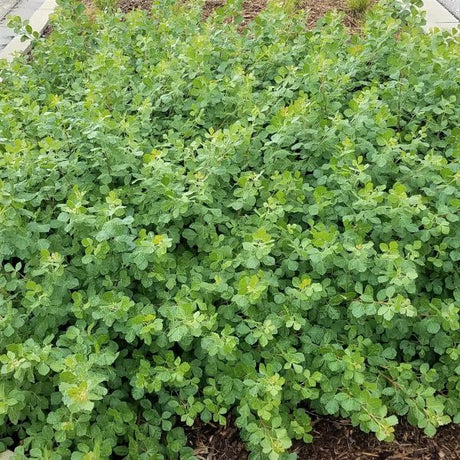-
Tiger Eyes® Cutleaf Staghorn Sumac
Rhus typhina 'Bailtiger' PP16185
PreorderRegular price $9907Unit price /Unavailable -
-
-
Rhus glabra
Sold outUp to 11% offRegular price From $8465Unit price /Unavailable -
FAQ's for Buying Sumac Online
What are Sumac shrubs and how are they used in landscaping?
What are Sumac shrubs and how are they used in landscaping?
Sumac shrubs (Rhus) are hardy, low-maintenance native plants known for their tropical-looking foliage, vibrant fall color, and wildlife value. Used in landscaping for groundcover, erosion control, privacy screens, and ornamental accents, Sumac is ideal for poor soils, rocky terrain, and slopes where other plants struggle.
Is Sumac deer-resistant and pollinator-friendly?
Is Sumac deer-resistant and pollinator-friendly?
Yes, Sumac shrubs are deer-tolerant thanks to their textured bark and fuzzy branches, and they’re highly attractive to pollinators. Their nectar-rich flowers support bees, wasps, and butterflies, while the fruit clusters provide essential winter food for birds like pheasants, quail, and over 300 songbird species.
Can Sumac shrubs grow in poor soil or urban environments?
Can Sumac shrubs grow in poor soil or urban environments?
Absolutely. Sumac thrives in poor, rocky, and dry soils and is highly tolerant of urban pollution. These shrubs handle full sun or partial shade and adapt well to roadside plantings, commercial sites, and other challenging conditions where low-maintenance, resilient plants are needed.
Are any Sumac plants edible or useful in the kitchen?
Are any Sumac plants edible or useful in the kitchen?
Yes! While the Sumacs sold by Nature Hills are not poisonous, some varieties offer edible fruit used to make Sumac-ade, a tangy, lemonade-like drink. Dried and ground Sumac is also used as a spice in Middle Eastern cooking, adding a citrusy flavor to salads and meat dishes.
How do you care for Sumac shrubs for best growth?
How do you care for Sumac shrubs for best growth?
Plant Sumac shrubs in well-drained soil with full sun for best color and form. Prune in late winter to maintain shape, or perform renewal pruning every few years. They’re drought-tolerant once established and require minimal maintenance, though suckers can be trimmed annually if not desired.
































